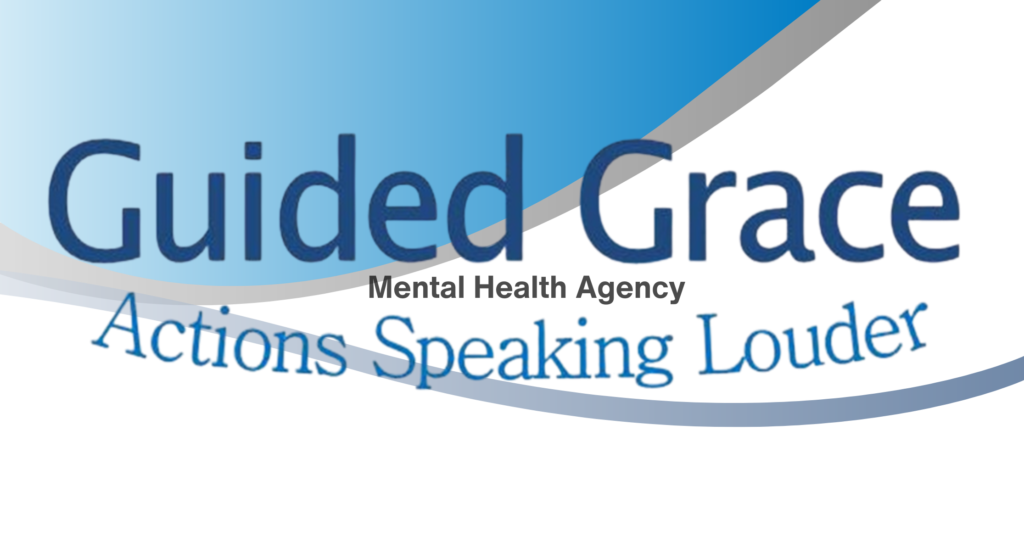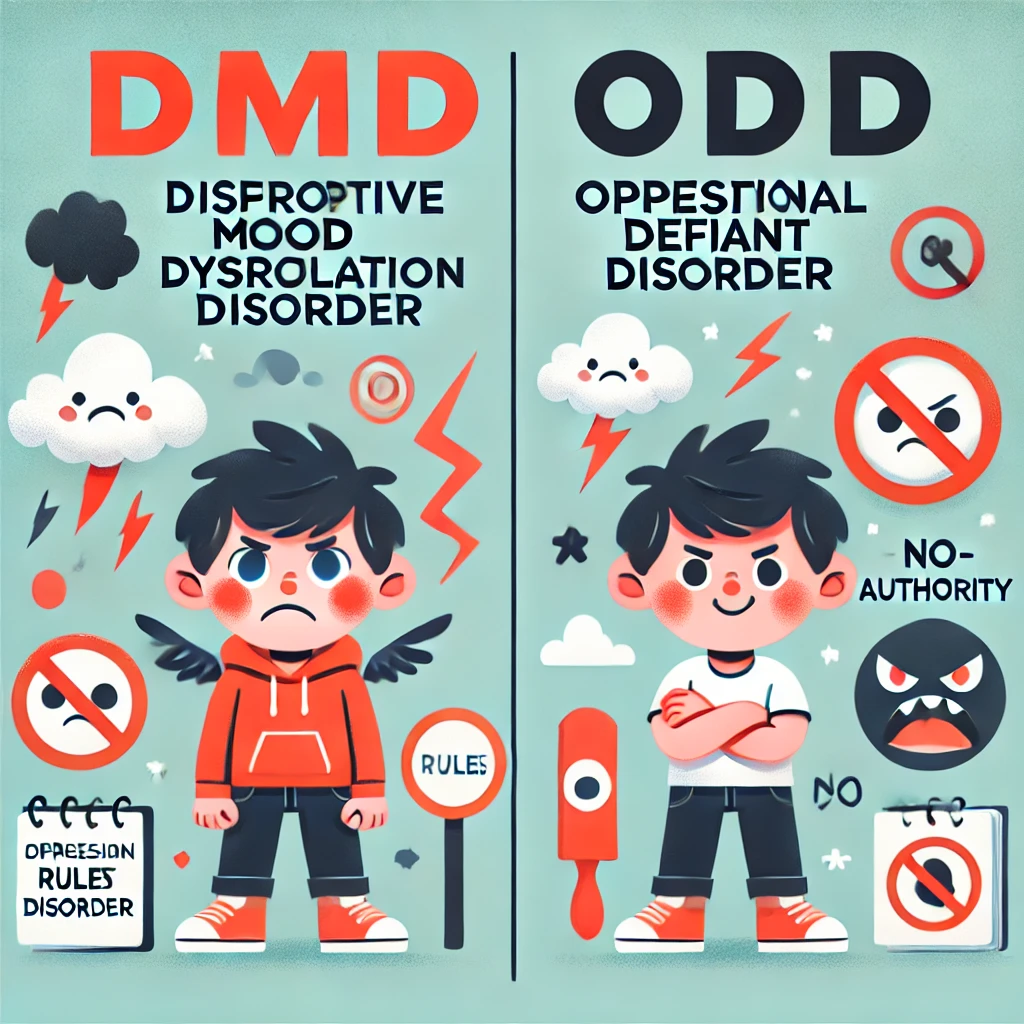Raising kids is full of surprises. Unfortunately, those surprises sometimes come in the form of challenging behaviors.
For instance, are you finding yourself walking on eggshells around your child? Or do their temper tantrums happen more often and with more intensity than other kids their age?
Yes?
You might be dealing with a childhood behavioral disorder like Disruptive Mood Dysregulation Disorder (DMDD) or Oppositional Defiant Disorder (ODD).
Both DMDD and ODD involve irritability, anger, and challenging behaviors, but they have some key differences.
Let’s explore these conditions, their differences, and what you can do for your child.
DMDD vs. ODD: A Closer Look
What is DMDD?
Is your child who is constantly irritable, like a volcano, ready to erupt? Do they have frequent, intense temper outbursts that seem so much bigger than the situation?
This could be a sign of DMDD, Disruptive Mood Dysregulation Disorder. It’s a childhood condition known for severe irritability and angry outbursts.
These outbursts can be verbal (yelling, screaming) or behavioral (hitting, kicking, breaking things).
Kids with these disorders seem to be in an almost constant irritable mood. And they have meltdowns over something small, like being asked to put on their shoes or share a toy.
When a kid struggles with DMDD, their behavior makes things difficult for them at home, school, or with friends.
What is ODD?
Does your child constantly argue with adults, refuse to follow rules, and seem to deliberately annoy others?
This could be a sign of ODD, Oppositional Defiant Disorder. It’s a behavioral disorder where kids have a pattern of defiant behavior.
Now, remember, if you tell your kid to switch off the TV or do their homework and they throw a mini tantrum, that’s probably not ODD.
But if it’s a constant battle where they push back in an ugly or snarky manner about pretty much everything you tell them, it could be.
These kids display a pattern of angry or irritable mood, argumentative or defiant behavior, and vindictiveness. They might have frequent temper tantrums, argue excessively with adults, and refuse to comply with rules.
Kids with ODD struggle to follow rules, refuse to do chores, argue a lot, and seem to enjoy pushing people’s buttons.
This behavior tends to come out, especially towards adults in charge, like parents, teachers, or babysitters. It also has a negative impact on their daily lives.
They might constantly question rules, refuse to do chores, or talk back to adults.
How are DMDD and ODD Different?
While irritability and anger are signs of both DMDD and ODD, the two are different disorders.
DMDD is known for a relentless irritable mood with severe temper outbursts.
ODD is more focused on defiant and argumentative behaviors towards authority figures.
To make things clearer, here’s a table that breaks down the main differences.
|
Feature |
DMDD |
ODD |
| Main Issue | Big, frequent temper outbursts with lots of irritability and anger | Defiant, argumentative, and vindictive behavior |
| Mood | Always irritable and angry | Irritability and anger usually happen because of specific situations or rules |
| Outbursts | Intense and happens many times a week | Happens often, but not as often or as intense as in DMDD |
| Who is Targeted? | Anyone, including friends and family | Mostly adults in charge, like parents and teachers |
| When It Starts | Usually before age 10 | Can start as early as preschool |
| Other Symptoms | Can include sadness, trouble focusing, and sleep problems | Can include arguing, not following rules, and blaming others |
What causes DMDD and ODD?
It’s difficult to say, really.
Research suggests that it is a combination of things impacting their development, like genetics, temperament, and environmental factors.
For instance, a family history of mood disorders or difficulties with emotional regulation can increase the risk of developing DMDD or ODD.
Treatment and Support
This might sound like a lot, and it is, but don’t despair.
You are not alone, and there is help. With the right support and guidance, children with DMDD and ODD can thrive.
At Guided Grace , we offer several services to help kids and families.
In our sessions, we create a safe and supportive environment where kids and parents will be heard and learn how to manage these behavioral disorders.
We always take a personal approach to make sure the treatment plan suits your needs.
Some of our services that can help DMDD and ODD:
- Cognitive Behavioral Therapy (CBT) will help kids understand how their thoughts affect their feelings and actions and learn new ways to think and behave.
- Parent Management Training (PMT) teaches parents how to respond to their child’s behavior in a way that helps them learn and grow.
- Social Skills Training helps kids make friends, communicate better, and feel more comfortable in social situations.
- Family Therapy brings the whole family together to work on communication, solve problems, and build stronger relationships.
Helping Your Child at Home
Seeing a therapist specializing in child care will make an immense difference, but there are things you can do, too.
- Keep things consistent. Regular routines and clear rules help kids feel safe and secure, which can reduce anxiety and challenging behaviors.
- Focus on the good. When your child does something well, let them know! Praise and rewards can encourage positive behavior.
- Teach coping skills. Help your child learn healthy ways to deal with anger and frustration, like taking deep breaths, taking a break, or doing something calming.
- Connect with other families. Talking to other families who are going through similar things can be a huge help.
Let’s Talk
If you’re looking for support for your child with DMDD or ODD, we’re here to help.

